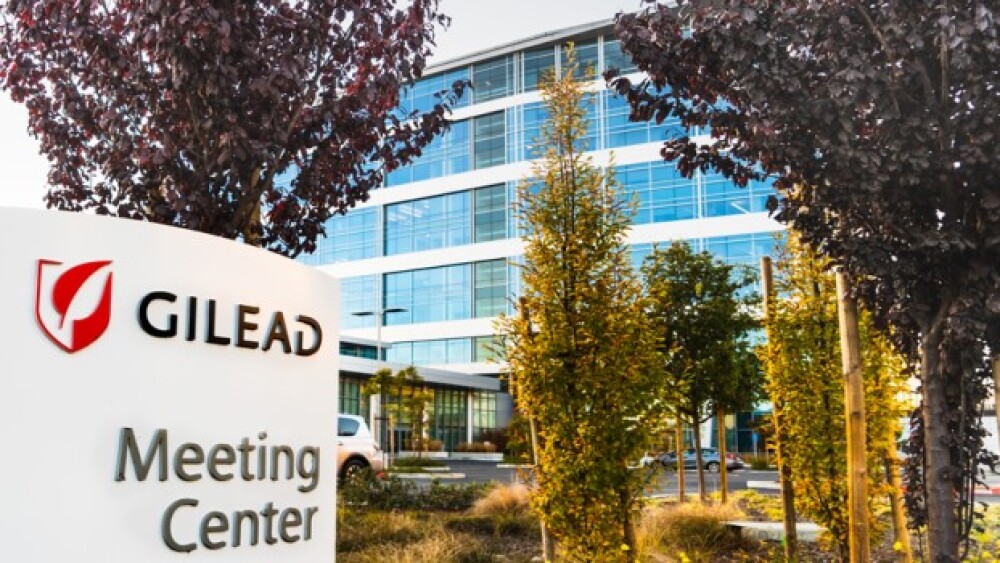A combination of Gilead Sciences’ domvanalimab and Arcus Biosciences’ zimberelimab, along with chemo, has shown an “encouraging” overall response rate in a mid-stage study.
Pictured: Gilead sign and building in Silicon Valley/iStock, Sundry Photography
Gilead Sciences and Arcus Biosciences are touting positive results for their combination treatment in upper gastrointestinal cancers, including locally advanced unresectable or metastatic gastric, gastroesophageal junction, or esophageal adenocarcinoma, the companies announced Monday.
The combination of Gilead’s Fc-silent anti-TIGIT antibody domvanalimab, Arcus’s anti-PD-1 asset zimberelimab and chemotherapy had an “encouraging” overall response rate (ORR) and a six-month progression-free survival (PFS) rate. The results are part of the still ongoing Phase II EDGE-Gastric trial.
The domvanalimab combination had an ORR of 80% in patients with PD-L1-high tumors, 46% in patients with PD-L1-low tumors and 59% for patients overall. Gilead also noted there were two confirmed complete responses.
For the six-month PFS metric, in patients with PD-L1-high tumors, the rate was 93% while for those with PD-L1-low tumors the rate was 68%. For patients overall, a rate of 77% was reported. However, the trial did not reach a median PFS, according to Monday’s announcement. Mature PFS data will be available in the second half of 2024.
“The preliminary data from the EDGE-Gastric study underscore the potential role of dual anti-TIGIT and anti-PD-1-containing regimen in the treatment of gastroesophageal cancer where front-line chemotherapy with anti-PD-1 blockade is currently the standard,” Yelena Janjigian, chief attending physician of the gastrointestinal medical oncology service at Sloan Kettering Cancer Center, said in a statement.
Gilead also reported that those treated withdomvanalimab were “well tolerated” and had a safety profile that is comparable to other anti-PD-1 and chemotherapy treatments. No serious adverse events were reported and no events resulted in fatalities. The most common adverse events were nausea and neutropenia, an abnormally low white blood cell count.
“These early data are encouraging and indicate the potential for the anti-TIGIT, domvanalimab-based therapy to improve upon anti-PD-1 and chemotherapy in this setting, with a similar safety profile to anti-PD-1 and chemotherapy,” Janjigian said.
The data aims to support an ongoing Phase III study of the combination known as STAR-221. Arcus and Gilead have three other late-stage trials investigating domvanalimab-based treatments in lung cancer as well.
In June 2023, a Phase II study investigating domvanalimab zimberelimab (doublet) and domvanalimab, zimberelimab and etrumadenant as a first-line treatment in non-small cell lung cancer reported “clinically meaningful improvements” in PFS against a zimberelimab monotherapy. Gilead touted a 33% reduction in risk of disease progression or death in the doublet and 28% in the other combo.
Tyler Patchen is a staff writer at BioSpace. You can reach him at tyler.patchen@biospace.com. Follow him on LinkedIn.






